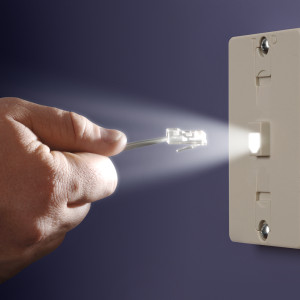Outside of the current infrastructure debate, one bill that would improve internet access for all Americans passed the Senate unanimously. The 2020 Data Mapping to Save Moms’ Lives Act treats broadband as a women’s economic security issue, and rightly so. It would require the federal government to map the relationship between internet access and maternal mortality in order to identify the areas where improved access to telehealth could be most beneficial. We have Sens. Rosen (D-Nev.), Fischer (R-Neb.), Schatz (D-Hawaii), and Young (R-Ind.) to thank for the legislation.
Few would question the link between broadband and women’s health and economic security after Covid-19. We have all read stories of women forced to drive their children to parking lots in search of WiFi for remote learning. Women who struggle to work from home with unreliable hotspots. Women who drive sick or elderly parents to a clinic hours away because they cannot take advantage of telehealth services.
These are more than stories for the 135 million women living in the U.S. These are day-to-day economic realities that have been plaguing women long before the pandemic.
Over 42 million Americans cannot have the internet in their home, according to industry watchdog BroadbandNow [broadbandnow.com]. Not because it’s too expensive, but because the service is not physically available. The number increases to 60.5 million when you include those who cannot afford to install the internet available. The situation is most grave on tribal lands, where 27.7 percent of Native Americans lack access to the internet, according to a 2020 FCC report [fcc.gov].
Broadband access is the rare issue that is equally important to rural and urban communities. While Republicans and Democrats are fighting about the definition of infrastructure, one thing we can all agree on is that Americans should have access to broadband even if they are inconveniently located.
There may have been a time when the internet was a luxury good, but those days are long gone. Whether for online banking, telehealth, job applications, working from home, or remote learning, the internet is a necessity just like electricity, roads, and plumbing. It’s a necessity that far too many are having to do without, and women are suffering as a result.
Imagine being limited to 1,000 minutes and 4GB of data a month, as is the case for the 8.7 million households reliant upon the federal discount program Lifeline [usac.org]. For some perspective, the average American uses 9.2GB of mobile data a month, according to market research firm NPD Group [npd.com]. That is separate from the 700GB of non-mobile data the average American with access to broadband has been using per month during the pandemic, according to Charter Communications [nexttv.com]. For the millions of Americans without access to broadband, their mobile device is literally a lifeline. But with only 4GB, it is one that forces families to choose between talking to their doctors, their employers, or their relatives – decisions which, more often than not, fall on women.
Solving American broadband will not be easy – after all, if it were easy, it would have been solved already. Fortunately, there are numerous proposals and success stories to draw from: the Indian Affairs Bureau recently issued 28 policy recommendations to improve broadband on tribal lands. The Department of Education is developing a SMART HBCU’s program that would use historically black colleges as the anchor for expanding broadband in unserved issues – an initiative which grew out of the American Broadband Initiative founded under President Donald Trump.
As broadband does not sit entirely at the federal level, it is just as important to shine a light on state leadership, whether Georgia’s 2019 “broadband ready” site designations that spurred private investment or JobsOhio’s new partnerships with the DeWine administration, InnovateOhio, and Starlink, a new satellite broadband service.
American broadband needs a commitment from everyone: private, public, state, and federal. In the words of Sen. Shelley Moore Capito (R-Wash.), “infrastructure is the perfect opportunity to show the American people we can work together.” We couldn’t agree more – after all, there are no “Republican bridges, Democratic airports, Republican hospitals, or … Democratic power grid[s,]” to quote President Joe Biden.
And so, I ask you on behalf of Engage and on behalf of the 135 million women whose economic security depends on access to broadband to please negotiate the compromise. Remember the political success of the Data Mapping to Save Moms’ Lives Act and the value of the woman voter. After all, women outnumber, outvote, and outlive men. They are the deciders of the elections.
As a country, we cannot afford to go without broadband, not after COVID-19, not when Americans are so desperate to be connected with one another.

